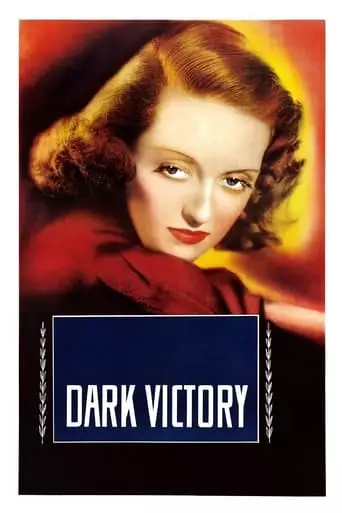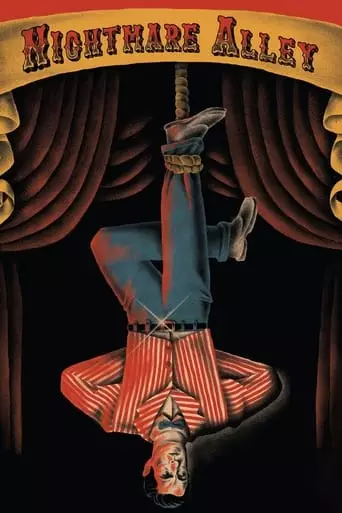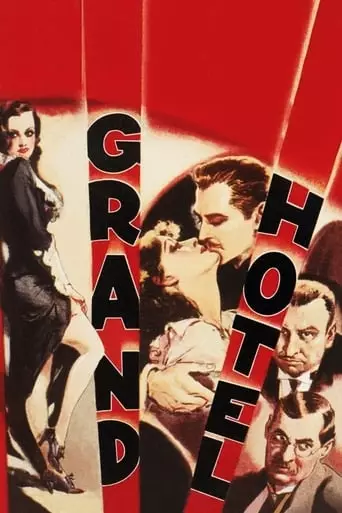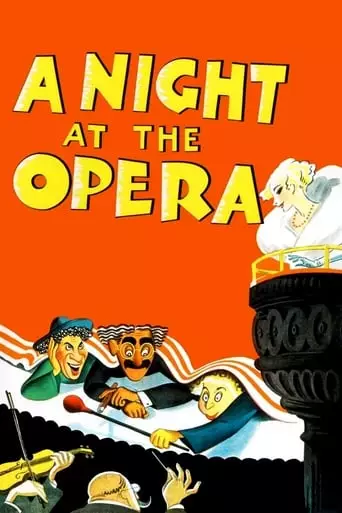When World War I breaks out, brothers Roy and Monte Rutledge, each attending Oxford university, enlist with the Royal Flying Corps. Hell’s Angels is a 1930 American pre-Code epic war […]

When World War I breaks out, brothers Roy and Monte Rutledge, each attending Oxford university, enlist with the Royal Flying Corps. Hell’s Angels is a 1930 American pre-Code epic war […]

Socialite Judith Traherne lives a lavish but emotionally empty life. Riding horses is one of her few joys, and her stable master is secretly in love with her. Told she […]

Stanton Carlisle joins a seedy carnival, working with Mademoiselle Zeena and her alcoholic husband, Pete. Nightmare Alley is a 1947 film noir directed by Edmund Goulding, featuring Tyrone Power as […]

Guests at a posh Berlin hotel struggle through worry, scandal, and heartache. Grand Hotel is a 1932 American pre-Code drama directed by Edmund Goulding, featuring an ensemble cast that includes […]

The Marx Brothers take on high society and the opera world to bring two lovers together. A sly business manager and two wacky friends of two opera singers help them […]
Edmund Goulding: The Elegant Storyteller of Hollywood’s Golden Age
Edmund Goulding was a British-born filmmaker, screenwriter, and composer whose career flourished during Hollywood’s Golden Age. Known for his sophisticated storytelling, ability to draw out stellar performances from his actors, and his versatility across genres, Goulding directed some of the most iconic films of the 1930s and 1940s. From the romantic melodrama Grand Hotel (1932) to the dark and gripping Nightmare Alley (1947), Goulding’s work remains a testament to the artistry of classic Hollywood cinema.
Early Life and Career Beginnings
Edmund Goulding was born on March 20, 1891, in Feltham, Middlesex, England. He began his career in the arts as a playwright and actor in the London theater scene. His early success as a writer led him to Hollywood in the early 1920s, where he initially worked as a screenwriter.
Goulding quickly gained recognition for his skill in crafting compelling narratives and penning emotionally resonant scripts. His transition to directing came in 1925 with the silent film Sun-Up. His early directorial efforts showcased his flair for drama and his keen ability to work with actors, traits that would define his career.
Grand Hotel (1932): A Milestone in Ensemble Storytelling
One of Goulding’s most celebrated films is Grand Hotel, an all-star ensemble drama that won the Academy Award for Best Picture. Starring Greta Garbo, John Barrymore, Joan Crawford, and Lionel Barrymore, the film interweaves the lives of various characters staying at a luxurious Berlin hotel.
Goulding’s direction was pivotal in managing the film’s complex narrative and balancing the performances of its high-profile cast. Grand Hotel was groundbreaking for its use of an ensemble structure, a format that has since become a staple in Hollywood storytelling. The film’s famous tagline, “People come, people go, nothing ever happens,” underscores its exploration of human connection and fleeting moments of significance.
A Master of Melodrama and Romance
Goulding earned a reputation as a master of melodrama and romance, often directing films that showcased complex emotional dynamics and glamorous settings. His films were known for their polished style, rich characterizations, and dramatic intensity. Some of his notable works in this vein include:
Dark Victory (1939): Starring Bette Davis as a young woman facing a terminal illness, this poignant drama became one of Davis’s most iconic performances. Goulding’s sensitive direction brought out the film’s emotional depth and earned it three Academy Award nominations.
The Constant Nymph (1943): A romantic drama featuring Joan Fontaine in an Oscar-nominated performance, this film highlighted Goulding’s ability to handle delicate, nuanced narratives.
The Razor’s Edge (1946): Adapted from W. Somerset Maugham’s novel, this philosophical drama starred Tyrone Power and Gene Tierney. Goulding expertly navigated the story’s spiritual and existential themes, earning critical acclaim.
Nightmare Alley (1947): A Bold Departure
In 1947, Goulding directed Nightmare Alley, a stark departure from his usual fare. This dark, psychological noir follows the rise and fall of a carnival con artist, played by Tyrone Power in one of his most daring roles.
The film’s exploration of ambition, deception, and moral decay was ahead of its time, and Goulding’s direction captured the story’s haunting atmosphere with striking visuals and a gripping narrative. Though not initially a commercial success, Nightmare Alley has since gained recognition as a classic of the noir genre and a testament to Goulding’s versatility.
Goulding’s Unique Style and Approach
Edmund Goulding’s films are characterized by their elegance, emotional intensity, and attention to detail. Key elements of his directorial style include:
Focus on Performances: Goulding was known for his ability to elicit powerful performances from his actors. Many stars, including Bette Davis and Joan Crawford, delivered some of their most memorable work under his direction.
Sophistication and Glamour: Goulding’s films often featured opulent settings and a refined aesthetic, reflecting his background in theater and literature.
Exploration of Human Emotions: Whether crafting romantic dramas or darker psychological tales, Goulding excelled at delving into the complexities of human relationships and emotions.
Genre Versatility: While best known for melodramas, Goulding proved his adaptability with ventures into noir, musicals, and even comedies.
Legacy and Influence
Edmund Goulding’s contributions to Hollywood’s Golden Age remain significant, even if his name is not as widely recognized as some of his contemporaries. His films have stood the test of time, celebrated for their artistry, emotional resonance, and compelling performances. Goulding’s ability to bring sophistication and depth to his storytelling set a standard for filmmakers of his era and beyond.
Conclusion
Edmund Goulding was a director of remarkable talent and versatility, capable of crafting films that ranged from sweeping romances to dark, psychological dramas. His work, particularly on films like Grand Hotel, Dark Victory, and Nightmare Alley, showcases his mastery of storytelling and his profound understanding of the human condition. As a filmmaker who left an indelible mark on Hollywood’s Golden Age, Goulding’s legacy continues to be appreciated by cinephiles and historians alike.